‘He can’t say a man’s stuff to a woman…’: perspectives on the preferences of men living with HIV for gender concordant care workers in Cape Town, South Africa
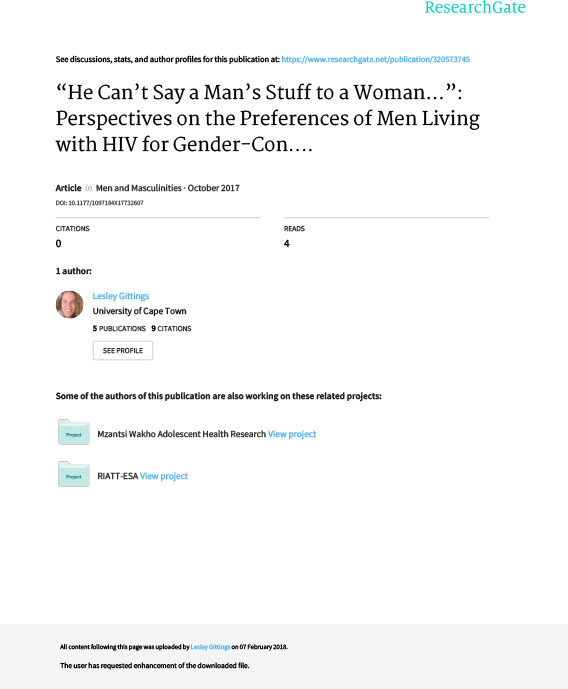
Community health workers (CHWs) play a central role in the provision of HIV care in South Africa, and people receiving such community-based adherence support have considerably better health outcomes. As with other forms of care work, the majority of CHWs are women. HIV vulnerability is also gendered, with women being more likely to contract HIV, […]
Raising the profile of men’s health
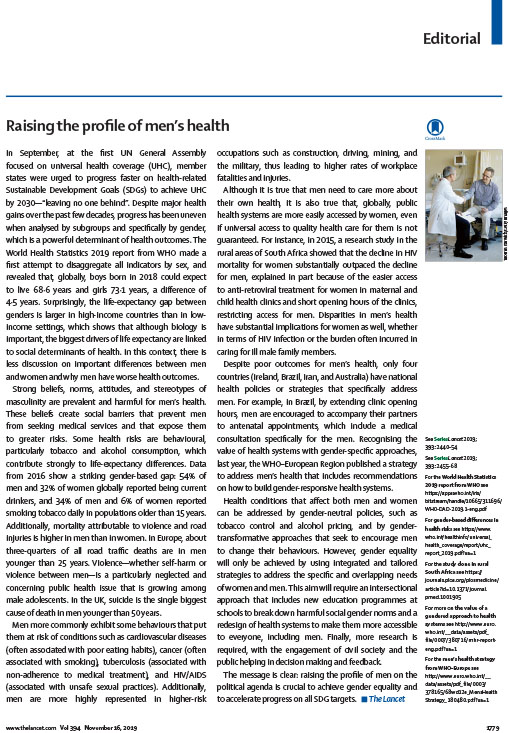
In September, at the first UN General Assembly focused on universal health coverage (UHC), member states were urged to progress faster on health-related Sustainable Development Goals (SDGs) to achieve UHC by 2030—“leaving no one behind”. Despite major health gains over the past few decades, progress has been uneven when analysed by subgroups and specifically by […]
Men’s Perceptions of Women’s Rights and Changing Gender Relations in South Africa: Lessons for Working With Men and Boys in HIV and Antiviolence Programs

Emerging out of increased attention to gender equality within violence and HIV prevention efforts in South African society has been an intensified focus on masculinities. Garnering a deeper understanding of how men respond to shifting gender relations and rights on the ground is of urgent importance, particularly since social constructions of gender are implicated in […]
Trends in Global Gender Inequality

This study investigates trends in gender inequality for the world as a whole. Using data encompassing a large majority of the world’s population, we examine world trends over recent decades for key indicators of gender inequality in education, mortality, political representation, and economic activity. We find that gender inequality is declining in virtually all major […]
Men’s health: a global problem requiring global solutions
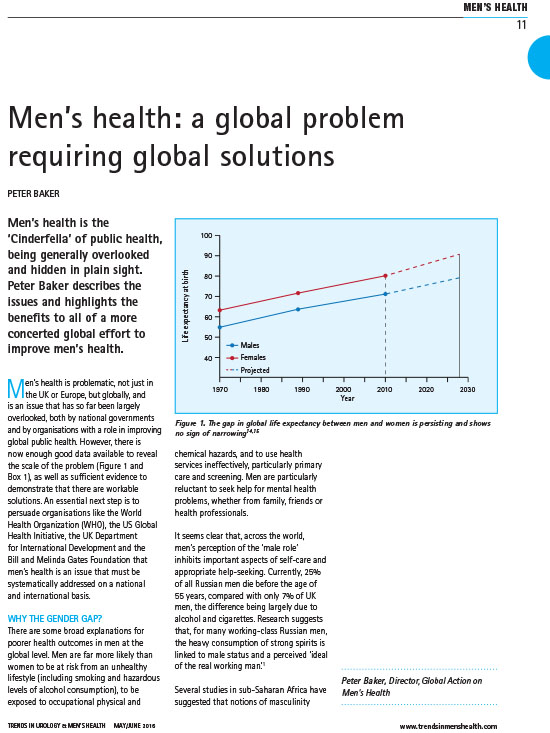
Men’s health is the ‘Cinderfella’ of public health, being generally overlooked and hidden in plain sight. Peter Baker describes the issues and highlights the benefits to all of a more concerted global effort to improve men’s health.
The men’s health gap: men must be included in the global health equity agenda
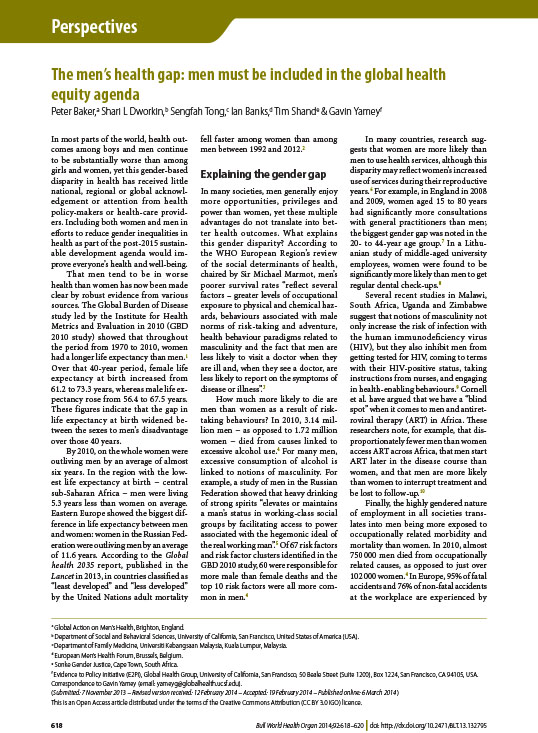
In most parts of the world, health outcomes among boys and men continue to be substantially worse than among girls and women, yet this gender-based disparity in health has received little national, regional or global acknowledgement or attention from health policy-makers or health-care providers. Including both women and men in efforts to reduce gender inequalities […]
Why now for a Series on gender equality, norms, and health?
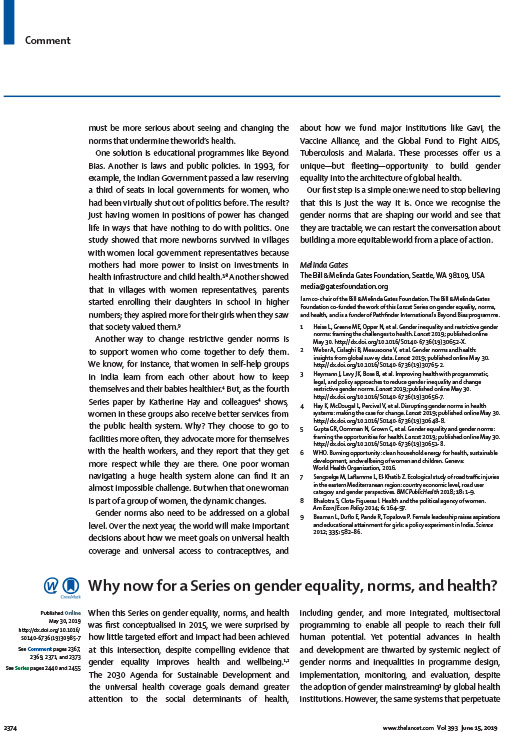
When this Series on gender equality, norms, and health was first conceptualised in 2015, we were surprised by how little targeted effort and impact had been achieved at this intersection, despite compelling evidence that gender equality improves health and wellbeing. The 2030 Agenda for Sustainable Development and the universal health coverage goals demand greater attention to […]
Sarah Hawkes: shining a gender lens on global health
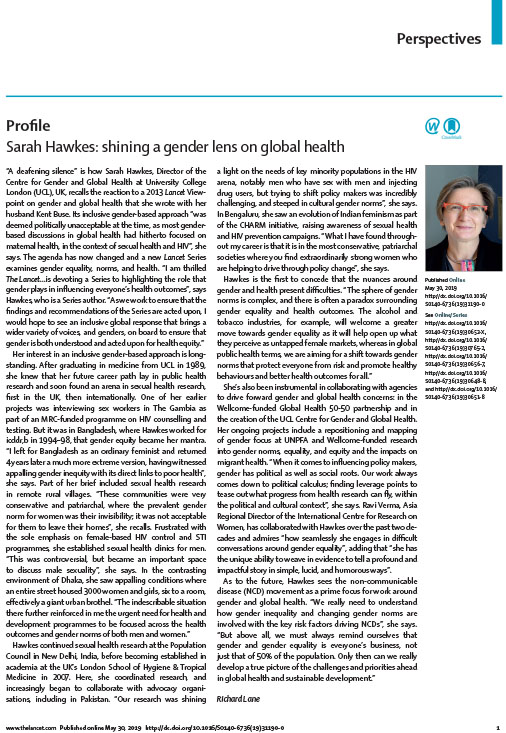
“A deafening silence” is how Sarah Hawkes, Director of the Centre for Gender and Global Health at University College London (UCL), UK, recalls the reaction to a 2013 Lancet Viewpoint on gender and global health that she wrote with her husband Kent Buse. Its inclusive gender-based approach “was deemed politically unacceptable at the time, as most gender-based […]
Improving health with programmatic, legal, and policy approaches to reduce gender inequality and change restrictive gender norms
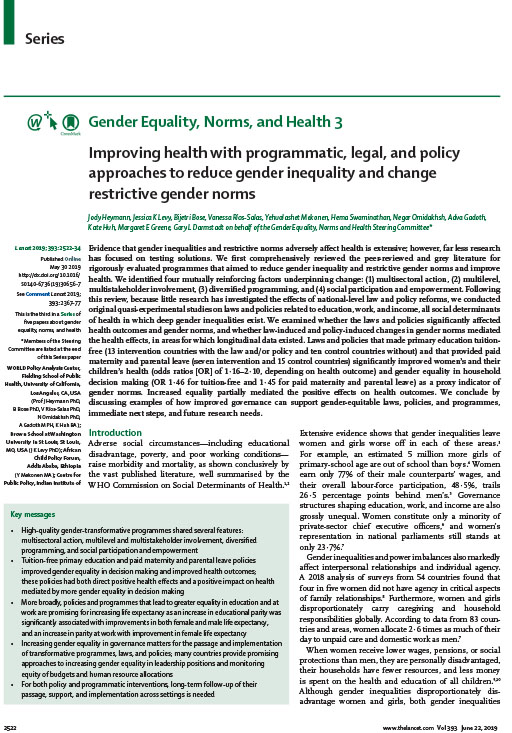
Evidence that gender inequalities and restrictive norms adversely affect health is extensive; however, far less research has focused on testing solutions. We first comprehensively reviewed the peer-reviewed and grey literature for rigorously evaluated programmes that aimed to reduce gender inequality and restrictive gender norms and improve health. We identified four mutually reinforcing factors underpinning change: […]
Gender norms and health: insights from global survey data
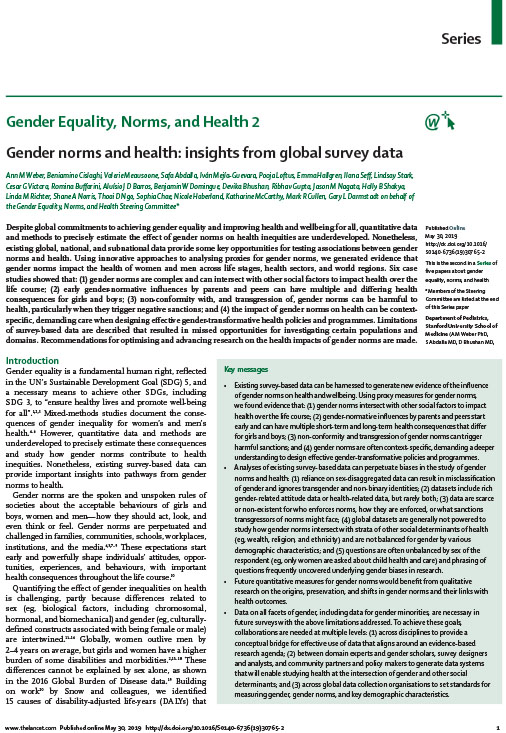
Despite global commitments to achieving gender equality and improving health and wellbeing for all, quantitative data and methods to precisely estimate the effect of gender norms on health inequities are underdeveloped. Nonetheless, existing global, national, and subnational data provide some key opportunities for testing associations between gender norms and health. Using innovative approaches to analysing […]


